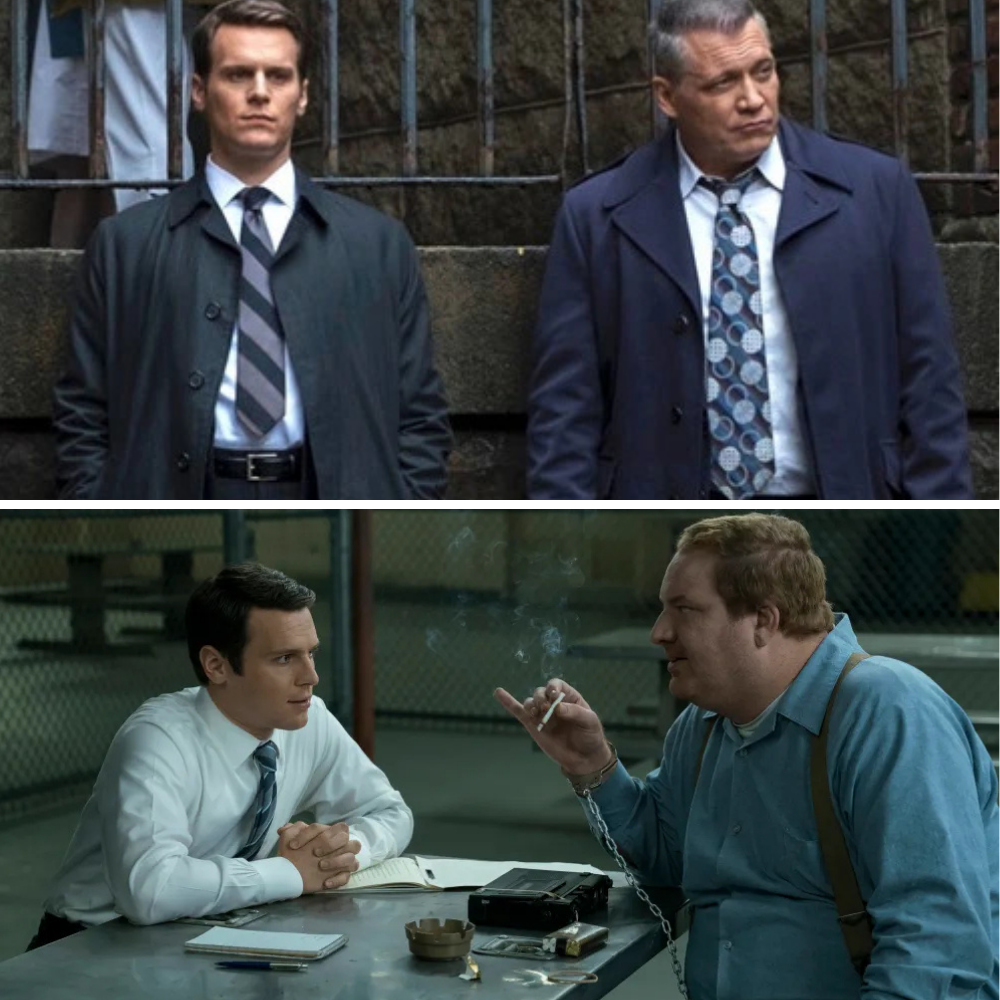
In the shadowy world of Netflix’s true-crime empire, few moments have left viewers gasping like the jaw-dropping finale of Monster: The Ed Gein Story. This latest installment in Ryan Murphy’s anthology series dives deep into the grotesque legacy of Ed Gein, the infamous “Butcher of Plainfield” whose crimes inspired horror icons from Norman Bates in Psycho to Buffalo Bill in The Silence of the Lambs. Starring Charlie Hunnam as the reclusive grave-robber turned murderer, the season explores Gein’s twisted psyche, his obsession with his domineering mother Augusta (played by Laurie Metcalf), and the cultural ripple effects of his 1950s atrocities in rural Wisconsin. But it’s the episode’s unexpected twist that has true-crime aficionados buzzing: a blatant homage to the cult-favorite Mindhunter, blending timelines and characters in a way that’s equal parts thrilling and baffling.
For the uninitiated, Mindhunter, created by Joe Penhall and executive-produced by David Fincher, chronicles the late-1970s origins of the FBI’s Behavioral Science Unit. Agents Holden Ford (Jonathan Groff) and Bill Tench (Holt McCallany), alongside psychologist Dr. Wendy Carr (Anna Torv), interview real-life serial killers to decode the criminal mind. The series, which ran for two seasons before being shelved in 2019, built a devoted following with its meticulous psychological dissections and eerie authenticity, drawing from the book Mindhunter: Inside the FBI’s Elite Serial Crime Unit by John E. Douglas and Mark Olshaker. Fans have clamored for a revival, with whispers of potential three-part movies teased by McCallany as recently as mid-2025, but Netflix’s silence has only fueled frustration.
Enter Monster’s finale, “The Godfather,” which veers into metatextual territory. As investigators hunt a killer eerily reminiscent of Ted Bundy, the scene shifts to a prison interview with Jerry Brudos, the “Shoe Fetish Slayer.” Happy Anderson reprises his exact role from Mindhunter, claiming Gein inspired his murders – a fictional liberty that amps up the drama. Then comes the real mind-bender: FBI agents John Douglas (Sean Carrigan) and Robert Ressler (Caleb Ruminer) appear, styled and dressed uncannily like Ford and Tench, complete with a psychologist Ann Burgess (Megan Ketch) mirroring Carr’s look. They consult Gein for insights into serial killer motivations, echoing Mindhunter’s interview format down to the visual cues and dialogue rhythm. One viewer captured the sentiment perfectly: “In one minute, I really thought it was two similar actors!” – a double-take moment that’s gone viral on social media, with fans accusing Netflix of “gaslighting” them into reliving Mindhunter’s absence.
This crossover isn’t subtle; it’s a deliberate Easter egg testing the waters for Mindhunter’s return. Showrunner Ian Brennan has hinted at weaving Gein’s influence into pop culture narratives, from Hitchcock’s Psycho (recreated with Tom Hollander as the director) to broader true-crime obsessions. Yet, it raises eyebrows for historical inaccuracies – Gein was arrested in 1957, predating the FBI unit’s formation by over a decade, and there’s no evidence of such interviews occurring. Critics argue Monster prioritizes shock over substance, with graphic violence and disjointed storytelling drawing mixed reviews, but this nod has reignited hope.
Social media erupts with reactions: posts lament Netflix’s tease without commitment, while others celebrate it as a “resurrection” for Mindhunter loyalists. Could this be Netflix’s sly marketing ploy to boost streams of the archived series, paving the way for a full revival? As Monster expands its “sexy serial killer universe,” blending fact with fiction, it underscores our endless fascination with monsters – real and televised. Whether this sparks Mindhunter’s comeback or remains a tantalizing what-if, one thing’s certain: Netflix knows how to keep us hooked on the edge of our seats, questioning every shadow.


